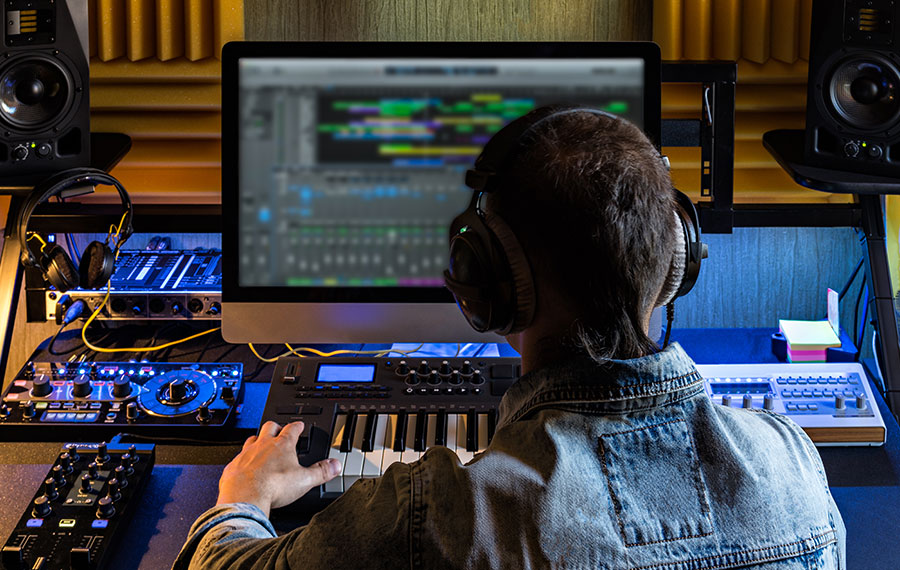How to Utilize Movie Soundtracks and Scores for Maximum Impact
Unleash Emotions! ?? Discover Movie Soundtracks & Scores for MAXIMUM Impact! ?? Dive into Epic Cinematic Music Now

Exploring the Enchanting World of Movie Soundtracks and Scores
Movies are a multi-sensory experience that engage our emotions, transport us to different worlds, and tell stories that resonate with our hearts and minds. While we often attribute a film's success to its visual elements, such as cinematography and special effects, there is another crucial component that often goes unnoticed but plays a profound role in shaping our cinematic experience - the movie soundtrack and score. In this 2000-word exploration, we will delve into the importance of movie soundtracks and scores, understanding how they elevate the overall movie-watching experience, evoke emotions, enhance storytelling, and leave an indelible mark on our memory.
The Role of Soundtracks in Enhancing Emotion
One of the primary functions of a movie soundtrack is to evoke emotions in the audience. Just as the actors' performances and the dialogue contribute to the emotional impact of a film, the music plays an equally vital role in conveying the intended emotions. Imagine a suspenseful scene without the ominous music building tension, or a heartwarming moment without a swelling, uplifting score - the emotional impact would be significantly diminished.
Soundtracks can manipulate our emotions, guiding us through the story's ups and downs. For example, the iconic theme from John Williams in "Jaws" instantly triggers fear and suspense, making us dread the impending shark attack. Conversely, the uplifting score of "E.T. the Extra-Terrestrial" creates a sense of wonder and adventure. In both cases, the music amplifies the emotional journey, making it more engaging and memorable.
Furthermore, soundtracks can intensify emotions by synchronizing with the narrative arc. The crescendo of music as a hero faces a climactic battle or the gentle melodies during a poignant love scene can leave a lasting emotional imprint on the audience. This synchronization between visuals and music elevates the storytelling, making it a more immersive and emotionally resonant experience.
Creating a Memorable Atmosphere
Soundtracks and scores also have the power to establish and maintain a consistent atmosphere throughout a film. They set the tone, time, and place of the story, helping the audience immerse themselves in the narrative world. This is particularly evident in period pieces and fantasy films, where the music can transport us to different eras or realms.
Consider the enchanting score composed by Howard Shore for "The Lord of the Rings" trilogy. The use of distinctive musical themes for different races, locations, and characters enhances the audience's understanding of the complex world created by J.R.R. Tolkien. The music becomes an auditory map, guiding us through Middle-earth and reinforcing the unique atmosphere of each location.
Similarly, in Quentin Tarantino's films, the carefully selected songs not only complement the visuals but also establish a distinct atmosphere. "Pulp Fiction," for instance, uses a blend of surf rock, soul, and rockabilly to create a gritty, retro vibe that perfectly matches the film's neo-noir style. This careful curation of music adds depth to the storytelling and amplifies the film's overall impact.
Enhancing Characterization
Movie soundtracks and scores can also play a pivotal role in character development. They provide insight into a character's emotions, motivations, and inner conflicts. By associating specific musical themes with characters, composers can communicate their depth and complexity, even without the need for extensive dialogue or exposition.
For instance, in "Star Wars," John Williams' use of leitmotifs for characters like Luke Skywalker, Darth Vader, and Princess Leia helps us understand their evolving journeys and relationships. The Imperial March, associated with Darth Vader, conveys his ominous presence and the dark side's allure. In contrast, the uplifting "Binary Sunset" theme captures Luke's yearning for adventure and destiny.
Furthermore, a character's theme can undergo variations to reflect their growth or transformation. This dynamic musical characterization adds depth to the characters and enhances our connection with them. As we hear their themes evolve, we become more invested in their stories and empathize with their struggles and triumphs.
Elevating Action and Suspense
In action-packed and suspenseful films, the role of soundtracks and scores is particularly pronounced. They serve as a driving force, intensifying the tension and excitement of key sequences. Without the appropriate musical accompaniment, even the most thrilling action scenes can feel lackluster.
Consider the "Mission: Impossible" film series, known for its adrenaline-pumping action sequences. Lalo Schifrin's iconic theme music is synonymous with the franchise and serves as a musical cue for high-stakes espionage. The suspenseful strings and pulsating rhythms not only complement the action but also propel it, making the audience's heart race in sync with the on-screen events.
Similarly, in horror films, soundtracks are instrumental in creating a spine-tingling atmosphere. The dissonant chords, eerie melodies, and unsettling sounds heighten the sense of dread and anticipation. Classics like Bernard Herrmann's score for "Psycho" or John Carpenter's minimalist approach in "Halloween" demonstrate how music can become a character itself, lurking in the shadows and amplifying fear.
Memorable Musical Themes
One of the enduring legacies of movie soundtracks and scores is their ability to create memorable musical themes that become ingrained in popular culture. These themes transcend the screen and become iconic in their own right, instantly recognizable even years or decades after a film's release.
the hauntingly beautiful theme from "Schindler's List," composed by John Williams. This piece of music not only enhances the emotional impact of the film but has also found a permanent place in the collective memory, often performed in concert halls and used in various cultural contexts to evoke themes of compassion and humanity.
the simple yet powerful theme from "The Godfather" by Nino Rota has become synonymous with the mafia genre and is instantly associated with themes of power, loyalty, and family. These enduring musical themes enrich the cultural fabric, transcending their cinematic origins.
movie soundtracks often feature popular songs that become hits in their own right. The "Guardians of the Galaxy" films, for example, use a selection of 70s and 80s rock and pop songs to great effect. These songs not only provide a nostalgic backdrop but also enhance the film's character dynamics and comedic moments. The success of these soundtracks has led to a resurgence of interest in classic rock music among younger generations.
Cultural Impact and Recognition
Movie soundtracks and scores can also have a profound impact on the cultural landscape. They can introduce audiences to new genres of music, showcase the work of talented composers and musicians, and even influence fashion and trends.
For instance, the soundtrack of "Saturday Night Fever" featuring the Bee Gees brought disco music to the forefront of popular culture in the late 1970s. The film's success not only propelled the Bee Gees to superstardom but also had a lasting impact on the fashion and dance trends of the era. Disco balls and bell-bottom pants became synonymous with the disco movement, all thanks to the cultural phenomenon created by the film's soundtrack.
Additionally, the recognition of composers and their contributions to film music has grown significantly over the years. Composers like Hans Zimmer, Ennio Morricone, and Alexandre Desplat have achieved celebrity status in their own right, with their work being celebrated at award shows and in the world of music composition. The Oscars and other film awards have categories specifically dedicated to recognizing outstanding achievements in original score and song composition, acknowledging the vital role of music in cinema
What's Your Reaction?

















